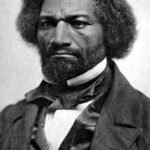While browsing Facebook on Monday, I saw a reference to a shooting at a mosque in Quebec. Like any good millennial, I went immediately to twitter to get the latest. There I learned that the suspect was a Moroccan Muslim, and that the shooter had yelled “Alahu Akhbar” during the incident. This was, in fact, being reported by major news networks. I concluded that the shooting must be a sort of workplace violence incident rather than one motivated by Islamophobia. On Tuesday it came out that all of that was wrong—and the shooter was a white supremacist Trump supporter.
Do you know what I find most appalling about this? On Monday, Trump’s press secretary, Sean Spicer, spoke to reporters, offering condolences to those involved. In the wake of Trump’s executive order banning individuals from seven countries from entering the U.S., Spicer called the incident at the Quebec mosque “a terrible reminder of why we must remain vigilant and why the president is taking steps to be proactive rather than reactive when it comes to our nation’s safety and security.”
Bear in mind that the perpetrator of the Quebec mosque shooting was a white supremacist Trump-supporter. Unless Trump’s executive order is extended to ban white supremacist Trump supporters, it does nothing to prevent situations like this—in fact, by portraying Muslims as a threat to American security, Trump’s executive order feeds the very Islamophobia that fueled this attack.
It has become pretty clear that many Americans are extremely afraid of being the victim of an Islamic terrorist attack. Fine. That’s their right, I suppose. However, the chances that that will happen are next to zero. They are far more likely to die falling out of bed than at the hands of Islamic terrorists, but I don’t see them worrying about that. Here’s something I wish more people would understand: Muslim Americans are far more likely to be victims of Islamophobic terror than the average American is to be the victim of Islamic terror.
Not so long ago, a Muslim woman was physically assaulted in my own town, near a restaurant I frequented regularly, by a white man yelling Islamophobic slurs. I wondered, then, what it must be like to live with that reality—to know that your beliefs and your dress make you the target of such hatred and even violence. Over the weekend, a mosque in Texas burned down mysteriously. While officials haven’t determined the cause, the mosque had been the target of Islamophobic vandalism in the past—as is unfortunately far too common for mosques.
I had a medical appointment on September 11, 2001. My doctor was a Pakistani immigrant; I’d been his patient since I was small. Do you know what I remember from that appointment? I remember that my doctor was afraid. I was only a teenager at the time, but I understood this. He wasn’t the only one who was afraid. At the time, my family hosted a Muslim international student from Kuwait who attended the local university. He hid in his apartment for three days, until we finally came and got him.
And he had good reason to be worried:

Have a look at this (incomplete) list of incidents perpetrated in the U.S.:
Muslims have been shot and killed, execution-style, in their living rooms and outside of their mosques. They have been fatally stabbed on their way home. They have been beaten in their stores, in their schools and on the streets. They have been kicked off airplanes, egged outside Walmart, scorched with hot coffee in a park, shot in cabs and punched while pushing their children in strollers. Their clothes have been set on fire and their children have been bullied. Men have come to their door and told them that they would burn down their house if they did not move away. They have been fired for wearing hijabs and for praying. They have seen their cemeteries vandalized and their Quran desecrated. A Muslim congressman has received death threats, and business owners have posted signs advertising “Muslim-free zones.”
Heavily armed men have protested outside mosques in Texas and Arizona, arguing that it’s their patriotic duty to protect the country from Islam.
People have covered the doors of a mosque with feces and torn pages of the Quran, left a severed pig’s head outside a mosque, firebombed mosques, urinated on mosques, spray-painted the Star of David and satanic symbols on mosques, carved swastikas and crude drawings of penises into signs at mosques, set fire to mosques, threatened to blow up mosques and kill “you Muslim f****,” fired rounds from high-powered rifles into mosques, wrapped bacon around the door handles of mosques, left hoax bombs and fake grenades at mosques, threatened to decapitate congregants at mosques, sent suspicious substances to mosques, written notes saying, “We hate you,” “We will burn all of you” and “Leave our country” to mosques, rammed a tractor-trailer into a mosque, thrown bricks and stones through the windows of mosques, pelted Muslims with rocks as they left mosques and stood outside mosques shouting, “How many of you Muslims are terrorists?”
There are around 3.3 million Muslims living in the U.S., making up only 1% of the total U.S. population and intensifying the impact of these incidents. Now remember that graph up the page a bit, that shows anti-Muslim hate crimes spiking after September 11th, 2001, and then decreasing but remaining substantially higher than previously? Well, there is reason to believe that anti-Muslim hate crimes are spiking again—perhaps as high as 2001 levels—due at least in part to rhetoric like Trump’s.
We humans are terrible at risk assessments. A child is far more likely to die in a car accident while being driven to school than they are to be kidnapped while walking to school, yet many parents drive their children to school precisely due to fears about child abduction. 44,000 Americans commit suicide each year, but we are more interested in shutting Syrian refugees out of the country based on a perception of risk—in the face of all evidence to the contrary—than we are in creating accessible mental health systems.
Sometimes I think we Americans are more interested in our fear of what might go wrong than we are in working to right what has already gone wrong.
I have a Patreon! Please support my writing!











